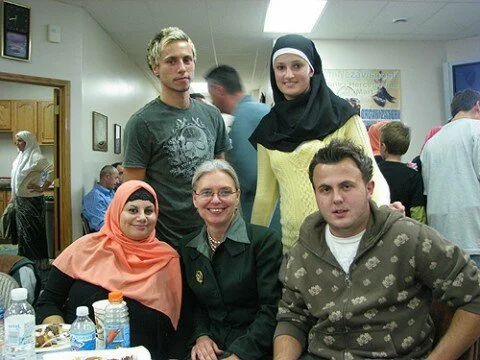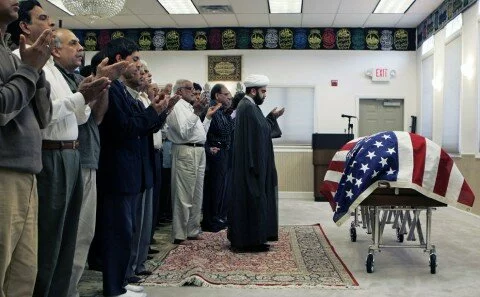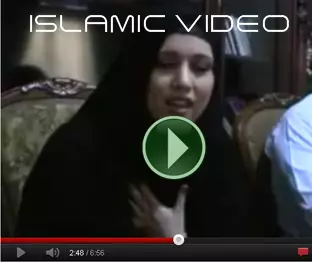Around Sept. 11, 2001, not long after she founded the Islamic Speakers Bureau of Atlanta, Soumaya Khalifa heard from a group whose name sounded like “Bakers Club.” It wanted a presentation.
The address was unfamiliar, but she went anyway. The group turned out to be the Bickerers Club, whose members love to argue. Islam was their topic du jour and theirvenue was a tavern. Ms. Khalifa laughed, and made the best of it.
Ms. Khalifa, who was born in Egypt and raised in Texas, wears a head scarf but also juggles, comfortably, the demands of American suburbia: crowded schedule, minivan and all.
She is one of a type now found in most sizable U.S. cities: vocal Muslim women wary of the predominantly male leadership of their community and increasingly weary of suspicions of non-Muslims about Islam.
These women have achieved a level of success and visibility unmatched elsewhere. They say they are molded by the freedoms of the United States — indeed, many unabashedly sing its praises — and by the intellectual ferment stirred when American-born and immigrant Muslims mix.
“What we’re seeing now in America is what has been sort of a quiet or informal empowerment of women,” said Shireen Zaman, executive director of the Institute for Social Policy and Understanding, a nonprofit research institute founded after the 2001 attacks to provide research on American Muslims. “In many of our home countries, socially or politically it would’ve been harder for Muslim women to take a leadership role. It’s actually quite empowering to be Muslim in America.”
As Najah Bazzy, a American-born nurse and founder of several charities in Michigan, put it: “Yeah I’m Arab, yeah I’m very American, and yeah I’m very Islamic, but you put those things in the blender and I’m no longer just a thing. I’m a new thing.”
It is not always easy. Several of the Muslim women interviewed for this article said they had been the object of abusive letters, e-mails or blog posts.
Yet in their quest to break stereotypes, America’s Muslim women have advantages. They are better educated than counterparts in Western Europe, and also than the average American, according to a Gallup survey in March 2009. In contrast to their sisters in countries like Egypt and Saudi Arabia, they are just as likely as their menfolk to attend religious services, which equates to greater influence. And Gallup found that Muslim American women, often entrepreneurial, come closer than women of any other faith to earning what their menfolk do.
“Muslims coming to North America are often seeking an egalitarian version of Islam,” said Ebrahim Moosa, an associate professor of Islamic studies at Duke University. “That forces women onto the agenda and makes them much more visible than, say, in Western Europe.”
Besides her speakers’ bureau, which advertises itself as “a bridge between Islam and Americans of other faiths,” Ms. Khalifa heads a consultancy working with students, executives, soldiers and even the F.B.I. to overcome stereotypes. Some people she addresses have never met a Muslim. Some look askance at head scarves.
Ms. Khalifa, who has degrees in chemistry and human resources, began wearing a head scarf in her mid-30s, about 15 years ago. At first, she said, people looked at her “like I was different, Muslim, un-American, stupid.”
But she is quietly persistent. When a small-town newspaper refused to run Ms. Khalifa’s ad listing the hours of a nearby mosque, she organized a successful boycott by local churchmen.
Perhaps the most noticed figure among American Muslim women is Ingrid Mattson. In a bright-red jumper and multicolored head scarf, she stood out among the gray-haired clerics in black who gathered in Washington in September to try and defuse the anger over the planned mosque near the World Trade Center site in New York.
Ms. Mattson, who is 47 and teaches at the Hartford Seminary in Connecticut, became the first woman to head the Islamic Society of North America, one of the largest Muslim associations on the continent.
She was first elected vice president on Sept. 4, 2001, then president in 2006, a position she held until September; those years were so full of sound and fury over all things Muslim that gender took a back seat.
Source : New York Times


















